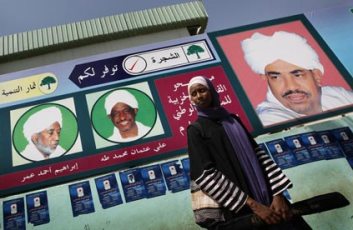NCP to “restructure” itself in line with Sudan’s austerity plans
10 June, 2012 (KHARTOUM) – Sudan’s ruling National Congress Party (NCP) is planning to reorganize its structures as part of wider austerity measures aiming to tackle the country’s economic crisis, an official revealed on Sunday.

Last week sources told Sudan Tribune that the NCP had decided to reduce the size of the government’s executive branch by 30 percent in a bid to slash spending on what some critics describe as an inflated cabinet.
The reduction in government size is seen as an attempt to send a message reassuring the public that the NCP is also going to suffer the pinch.
The NCP’s deputy spokesperson, Yasir Youssef, told reporters that a meeting of the party’s political sector held in the capital Khartoum on Sunday had listened to political and executive plans to contain the outcome of the austerity plans when the lifting of fuel subsidies comes into effect.
He said that the austerity plans awaiting the country would be followed by actions restructuring the NCP’s components, including its secretariats and the number of their representatives in the government.
Youssef however failed to give a timeframe for the restructuring plans, saying it was “premature” to talk about the specifics of these actions.
He further revealed that a committee had been formed to conduct the restructuring of both the government and the party.
The NCP official added that the proposed austerity plans are not confined to lifting fuel subsidies but are going to extend “reform the Sudanese economy as a whole.”
The proposal to lift fuel subsidies is due to be referred to the parliament within few days. Sources close to the NCP told Sudan Tribune that the party’s leadership expects the proposal to be passed with a “reasonable” majority
Sudan’s economy has been suffering since it lost 75 percent of oil revenues when South Sudan seceded last year. The loss of oil revenues led to sharp declines in the country’s hard currency reserves and hence great depreciation of the local currency.
The country’s inflation rate rose to 30 percent in May, mainly on food prices.
(ST)
